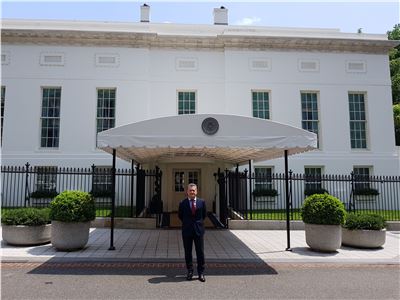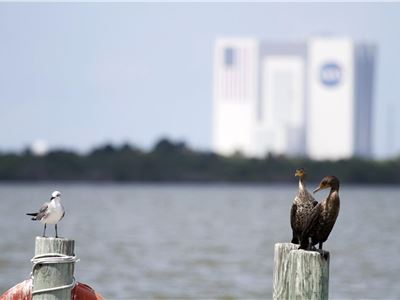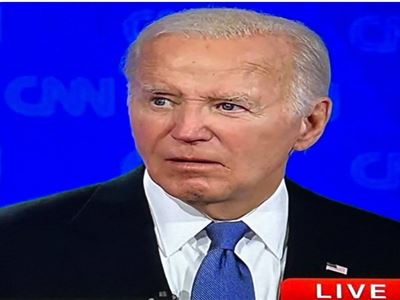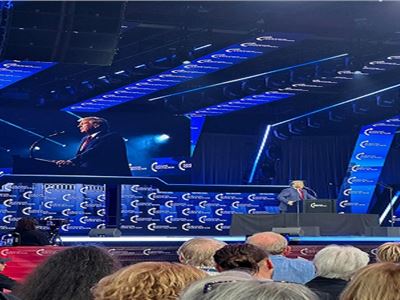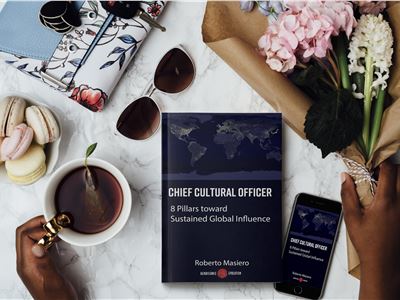The year was 1991, and I was a 27-year Army lieutenant in the 101st Airborne Division, landing my Blackhawk helicopter in Iraq on the first day of combat operations in Desert Storm. We knew our mission. We understood our goals. We were determined to defeat our enemies. And we did just that over the next days of combat.
There were loud voices in the United States opposing our military involvement in the Middle East. They made the traditional isolationist arguments that we had bigger issues at home, so we should not be engaged abroad. Some even said the American effort was immoral and imperialistic.
However, in the early 1990s, most Americans understood that our nation had deep and enduring national strategic interests in the Middle East. We needed to ensure our nation’s energy supplies in order to keep our economy strong. We needed to maintain the freedom of commerce across the region’s vital waterways. We needed to support Israel - our closest ally in the region and the only republic in the Middle East. So, despite the sacrifices, we fought and won the Gulf War over Iraq and, in the process, demonstrated to our enemies in the region and across the world that American resolve was unquestioned when certain lines were crossed by foreign countries.
Today, a similar debate is raging across our nation. Many voices on the Left and Right are calling for the United States to back away from involvement in the Middle East. Those on the Left say that Israel is an aggressor colonizer, and so we are on the wrong side by supporting the Jewish People. Many on the Left actually sympathize more with terrorist groups like Hamas and enemies like Iran than with a free republic and close ally, Israel.
Meanwhile, many voices on the Right today say that we should not be involved at all in places like the Middle East. In their opinion, involvement in the Middle East is a waste of blood and treasure. They say that Israel should stand or fall based on its own efforts.
As a US Army combat veteran and retired Lieutenant Colonel, I respectfully but strongly disagree with these voices on both sides.
The national strategic interests of the United States are absolutely at stake in the Middle East. First, our American economy is threatened if vital commercial and military waterways like the Bab al-Mandab Strait leading into the Red Sea, the Strait of Hormuz, or the Suez Canal are severed or jeopardized. The current Houthi attacks on commercial shipping in the Red Sea are making inflation worse here in the United States. It’s not in our national interest to allow the Houthis to take over the rest of Yemen. Such action would allow them to stop commerce across one of the busiest and most important commercial waterways in the world.
Second, thankfully, the United States is now the world’s leading producer of oil and natural gas. It’s an incredible achievement by our energy industry and a crucial reason why our nation’s economy is performing better than much of the world. However, the oil and natural gas produced in the Middle East is still crucial for our economy, and certainly, it’s vital for our key allies in Asia and Europe who are confronting China, Russia, and Iran - three countries who want a weaker United States.
Third, Israel is our closest ally in the Middle East and their very existence is threatened by Iran and its proxies who literally want to destroy the Jewish State. Israel needs and deserves our support. In reality, a secure Israel is good for the United States because it provides a beacon of hope and freedom and support for our values in a crucial part of the world. It’s also important to note that Israel’s defense technologies and innovations, which they share with us, are among the best in the world. They have contributed greatly to our American missile defense, armor, and drone systems.
Looking back at the last 150 years of American history, isolationism has harmed rather than helped American national security and our nation’s economic performance. Yes, we should put America First. Doing so, however, often means engaging around the world to protect American interests.
Stuart Jolly is a retired U.S. Army Lieutenant Colonel, Aviator, and political strategist, having helped run presidential, senatorial, and congressional campaigns. He is currently a co-chair at Hyperfocal, the political arm of Straife. From 2012-2016, he was Executive Director of a national education foundation and helped run super PACs as well.
- Tags:
- Categories:








